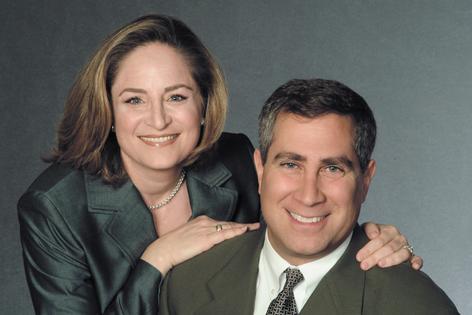Resident believes board president is making questionable governance choices
Q: I live in a 300-plus unit condo complex. There are two things going on in our condo that seem like inappropriate board overreach.
First, the new president has required that the Pledge of Allegiance be recited before meetings. But American citizenship is not required to own property in Illinois. Plus, reciting the pledge has nothing to do with condo business.
Second, the board president is bringing back piped-in Christmas music in our common areas. It stopped for a while. Most of our owners are Christian; however, many are not.
Is any of this unethical or illegal? It seems that one can go into one’s condo, and say the pledge or play Christmas music till they are blue in the face. Thank you for your advice.
A: We hear your frustration, and you’re right to question these decisions.
We’re not quite sure why the board president feels the need to have unit owners and board members recite the Pledge of Allegiance before board meetings. There are so many reasons not to do this. When you purchase a condominium, you may be a foreigner living in the United States. Or, owners may have different political views. You didn’t mention if the president of your board requires everybody in attendance to recite the pledge, but that can also be problematic for some owners.
To us, it seems like condo boards have enough issues to deal with when it comes to running associations. And yet, your board president is making questionable governance choices that could divide your community.
Here’s the thing: Your condo board has broad authority to manage common areas of the property and conduct meetings, but that power isn’t unlimited. Every action should serve a legitimate purpose related to maintaining property values, managing finances, or enhancing residents’ quality of life.
The pledge requirement? You’re right. That’s purely symbolic and unrelated to condo business. While a private condo association isn’t bound by First Amendment constraints the way government entities are, requiring this could make non-citizen owners and others uncomfortable for zero practical benefit. Board members can personally recite it before the meeting starts if they choose.
Association boards can decorate and play seasonal music in common areas, but exclusionary choices in a diverse community are tone-deaf at best. Many associations opt for “holiday” rather than specifically religious decorations, or incorporate symbols and music from all major religions, to respect everyone.
Your best move? That depends. You didn’t mention whether the building is run well, with everything else other than these issues going smoothly. We think that’s important too. Many associations are run poorly, and adding issues like these certainly makes it even more challenging to live in that association.
If the building is poorly run and you have these other issues to deal with on top of that, then rally like-minded neighbors and try to get everyone to attend the next board meeting. Request time on the agenda to discuss these concerns professionally and dispassionately. Review your bylaws — most require boards to act in the community’s best interest. If enough owners agree these policies are divisive and the board is doing a poor job, you can vote in new board members at the next election.
Document everything, stay civil, and remember: board members are volunteers serving all owners, not just those who share their personal beliefs.
Which brings us to our final point: If you don’t like how your association or condo building is being run, step up! Volunteer to help out. See how these things work from the inside out. We know that everyone is busy, but if you don’t make time to help out with the running of your association, you’re stuck with what you get.
========
(Ilyce Glink is the author of “100 Questions Every First-Time Home Buyer Should Ask (4th Edition).” She writes the Love, Money + Real Estate Newsletter, available at Glink.Substack.com. Samuel J. Tamkin is a Chicago-based real estate attorney. Contact Ilyce and Sam through her website, ThinkGlink.com.)
©2025 Ilyce R. Glink and Samuel J. Tamkin. Distributed by Tribune Content Agency, LLC.
































Comments